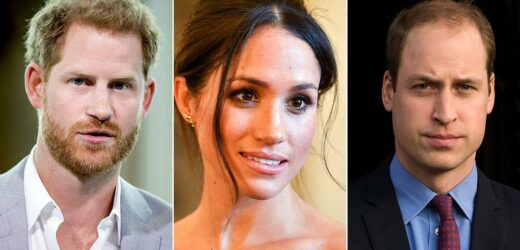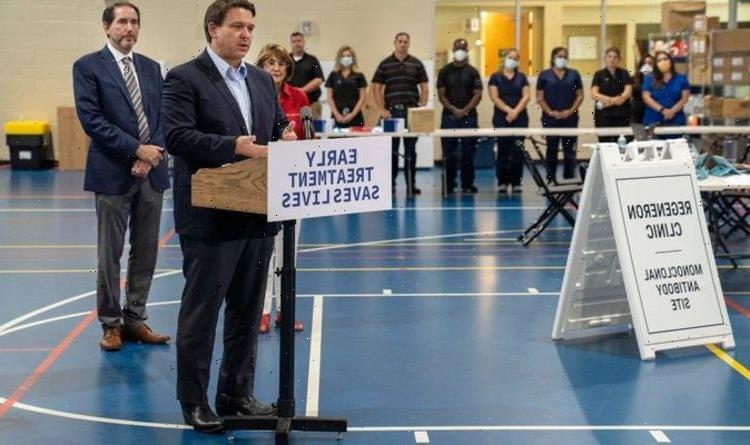The royals’ approach to mental health is one we can all learn from. From Prince Harry and Meghan Markle openly speaking about their experiences with therapy, to Prince William and his younger brother spearheading mental health initiative Heads Together, the family proudly champion the importance of talking about, and seeking help, for our problems, and we’re right there with them.
The Duke and Duchess of Sussex’s therapy experience has been widely covered in the news, but there are some other royal family members who have also had treatment for their mental health. Read on to find out who, as well as what Prince Harry and Meghan Markle have said about their own therapy sessions.
SEE: Prince Harry reveals argument with Meghan Markle led him to seek therapy
WATCH: Prince Harry launches mental health tool
Prince Harry
Prince Harry has been attending therapy since he lost his mother, the late Princess Diana, at age 12. He has publicly discussed his experience in several interviews, including on Bryony Gordon’s podcast, Mad World in 2017. “I have probably been very close to a complete breakdown on numerous occasions when all sorts of grief and all sorts of lies and misconceptions and everything are coming to you from every angle,” he said.
He went on to add that losing his mother led to him “shutting down all of my emotions for the last 20 years”, and it was only at the age of 28, spurred on by elder brother Prince William, that he decided to see a therapist.
MORE: Sophie Wessex confesses struggles with memory loss

Prince William, Kate Middleton and Prince Harry launched mental health campaign, Heads Together
“The experience I have had is that once you start talking about it, you realise that you’re part of quite a big club,” he said. “I can’t encourage people enough to just have the conversation because you will be surprised firstly, how much support you get and secondly, how many people are literally longing for you to come out.”
More recently, in his new Apple TV+ docuseries with Oprah Winfrey, The Me You Can’t See, he explained that therapy also played a part in saving his marriage with Meghan.
“I saw GPs. I saw doctors. I saw therapists. I saw alternative therapists. I saw all sorts of people, but it was meeting and being with Meghan. I knew that if I didn’t do the therapy and fix myself, that I was going to lose this woman who I could see spending the rest of my life with.”
RELATED: Sarah Ferguson shares ‘important’ mental health message with fans
Meghan Markle

The Duchess of Sussex encouragement for Prince Harry to seek help came from her own positive experiences with therapy.
In 2020, she wrote an emotional letter for the New York Times, revealing that she had suffered a miscarriage in July, and spoke about the importance of talking. “Sitting in a hospital watching my husband’s heart break as he tried to hold the shattered pieces of mine, I realised that the only way to begin to heal is to first ask, ‘Are you OK?'”
She added: “Losing a child means carrying an almost unbearable grief, experienced by many but talked about by few. Some have bravely shared their stories; they have opened the door, knowing that when one person speaks truth, it gives license for all of us to do the same.”
In an interview with Prince Harry on podcast Teenager Therapy, she also spoke about the use of journaling for mental health. “It allows me to reflect on where I’ve come from,” she said. “And with that comes a lot of perspective. I think that most of us can all connect with the idea that sometimes when you’re going through something it feels like the biggest thing in the entire world. I think when you look back at it in a year and yeah, it was still big, it wasn’t that big, comparatively. And it’s not to diminish what it was, it’s just suddenly when you have some perspective that is only visible when you have people to check you with that… I think that’s really valuable so that everything doesn’t become insurmountable, so there’s always a way to overcome something.”
Princess Diana

The late Princess Diana was one of the first royals to speak about therapy openly. In her BBC Panorama interview in 1995, she discussed seeking help for postpartum depression, bulimia and marital problems. “Maybe I was the first person ever to be in this family who ever had depression or was ever openly tearful,” she said. “And obviously that was daunting, because if you’ve never seen it before how do you support it?”
She went on: “I received a great deal of treatment, but I knew in myself that actually what I needed was space and time to adapt to all the different roles that had come my way. I knew I could do it, but I needed people to be patient and give me the space to do it.”
Prince Charles

Royal reporter and author Sally Bedell Smith reported that Prince Charles attended therapy for 14 years after seeking help in the early years of his marriage. Allegedly, Prince Charles appeared “misunderstood and starved of natural affection”.
Prince William

The Duke of Cambridge has previously spoken out about how his time as an ambulance pilot impacted his mental health. “I took a lot home without realising it,” he explained. “You see many sad things every day that you think life is like that. You’re always dealing with despair and sadness and injury. The attrition builds up and you never really have the opportunity to offload anything if you’re not careful.”
At a Heads Together event in 2019, he affirmed the significance of speaking about your problems. “For some reason, we’re all embarrassed by emotions – British people, particularly – we’re very embarrassed by revealing our emotions.”
Princess Margaret

Princess Margaret reportedly sought help following her divorce from Antony Armstrong-Jones in the 1970s. The Princess never publicly spoke about her struggles, or going to therapy, but it was depicted on Netflix series, The Crown.
James Middleton

Though not technically a royal, Kate Middleton’s younger brother James has been particularly candid about his mental health. In a letter for the Daily Mail, he revealed he had gone through a year of CBT (cognitive behavioural therapy) for depression. He also told the Telegraph that every member of his family, including the Duchess, attended therapy with him.
“That was so important,” he began. “Because it helped them understand me and how my mind was working. And I think the way the therapy helped me was that I didn’t need my family to say, ‘What can we do?’ The only thing they could do was just to come to some of the therapy sessions to start to understand.”
Make sure you never miss a ROYAL story! Sign up to our newsletter to get all of our celebrity, royal and lifestyle news delivered directly to your inbox.
Source: Read Full Article

